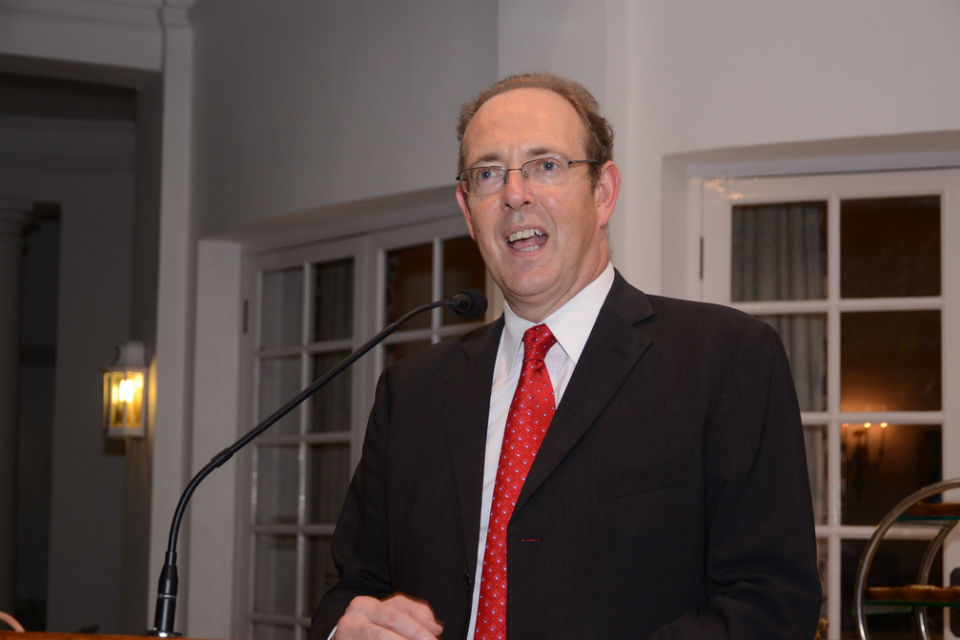'Feminism is the radical notion that women are people'
Transcript of speech by Sir James Bevan KCMG, UK High Commissioner to India, to young people for ending violence against women, Tuesday 17 March 2015.

I’m delighted to be here today to show my personal support for the fight to end violence against women and tackle social exclusion of all kinds.
This is important to me professionally – no country will flourish, including my own, unless it unleashes the talents of all its people, not just a few.
But as the proud father of three girls, women’s rights are also important to me personally. My youngest daughter celebrates her seventeenth birthday today: and I want her to grow up in a world where there are no limits to what she can achieve.
The first thing I want to do is to congratulate all of you. Each of you young Indians here this morning is here because you are special. You made it through a tough selection process. Your profiles show that you have already achieved incredible things. So message one: believe in yourself, because you deserve it.
Message two: if what you are doing seems hard, it’s because it is. Violence against women and girls has been going on in every society around the world for thousands of years. If it was easy to stop it, we would have done so by now.
Changing attitudes is always tough. Changing deep-seated cultural behaviour is even tougher. Vested interests will always fight to protect their privileges. As Gandhiji once said: ‘First they ignore you, then they laugh at you, then they fight you, then you win’. You have got to the fight stage. The next stage is, you win.
Message three: we – you - are making progress. Of course women, girls, the socially excluded still face many challenges around the world, including here in India. But the big fact about the 21st century is that things are getting better. Gradually, and not without a struggle. But they are getting better.
Around the world, more girls are in school – and if there is a magic bullet for successful development, it is to educate girls. Around the world, women are increasingly part of the workforce, increasingly active in politics, increasingly taking their own decisions about their lives: when and whether to get married, whether to have children, where to live, where to work, what to wear, who to vote for, how to spend their time.
And message four: you are not alone. As the French writer Victor Hugo said, ‘All the forces in the world are not so powerful as an idea whose time has come.’ – and the idea that everyone has the same rights is a powerful idea which will not be beaten. Feminism is the radical idea that women are people.
So in fighting for the rights of women and girls, the excluded, the marginalised, you are on the right side of history. And that fight is a shared fight. Britain, like every other country in the world, has its own challenges in this regard. By working together we can support and learn from each other. Together we are stronger.
Here in India there is an increasingly powerful coalition for social change. Prime Minister Modi himself has spoken out against violence against women and girls. And in my travels around this great country, everywhere I have met people – politicians, bureaucrats, MPs, business leaders, writers, reporters, artists, activists- all of whom are working to ensure rights for women and social justice for all. I applaud all of them.
I am an optimist about India. I think this is a great country with a bright future. But the best way to predict the future is to invent it. I encourage all of you to go out and invent the India that you want.